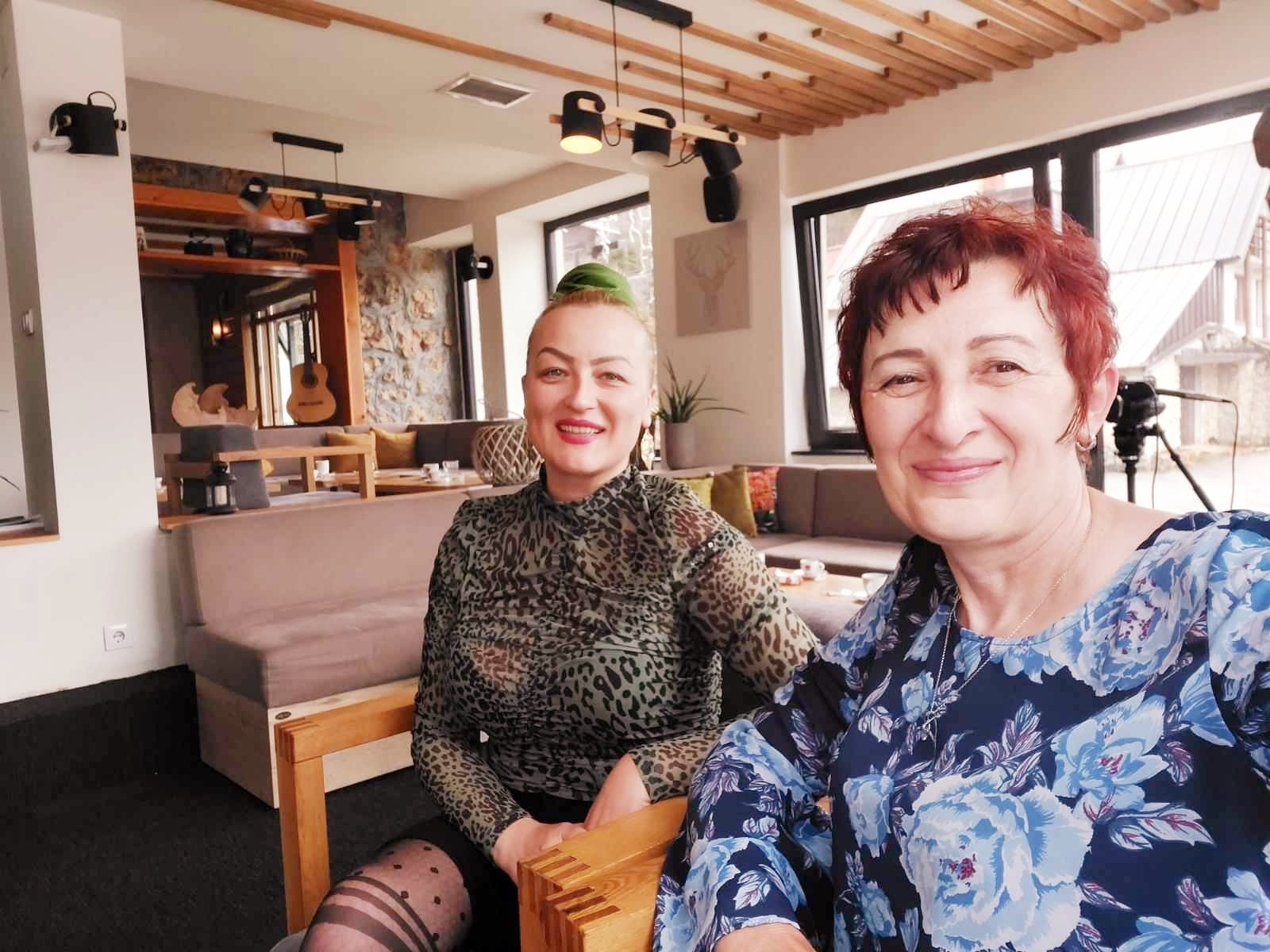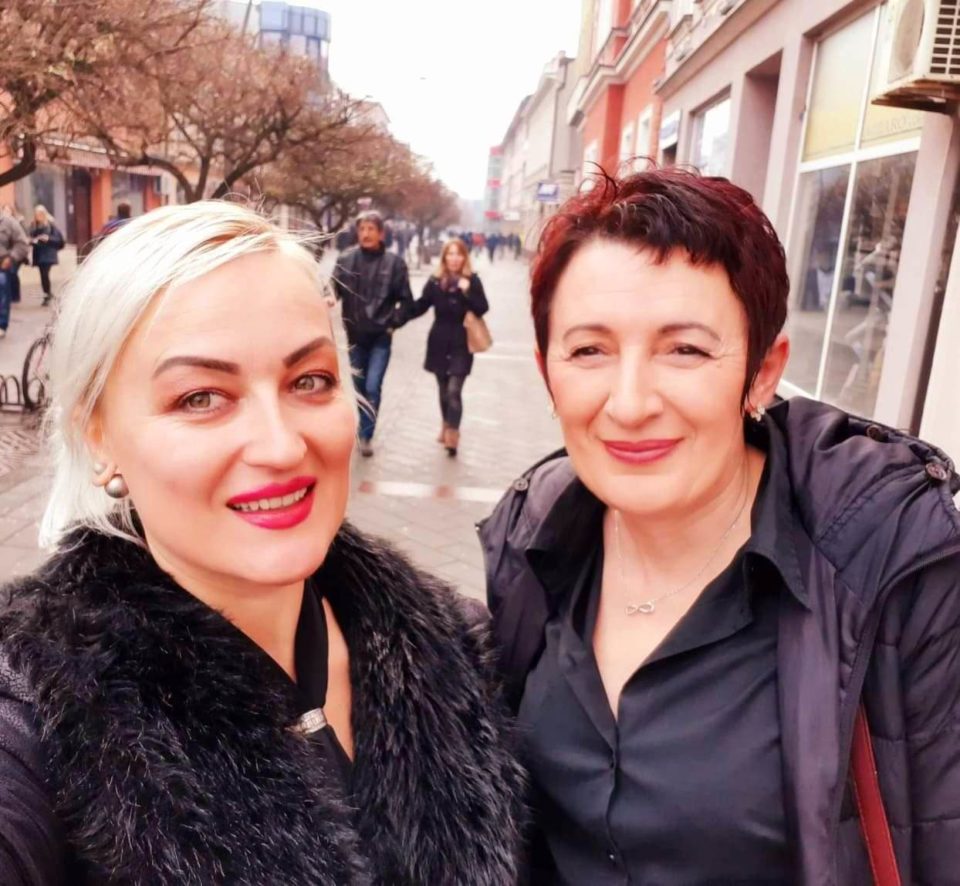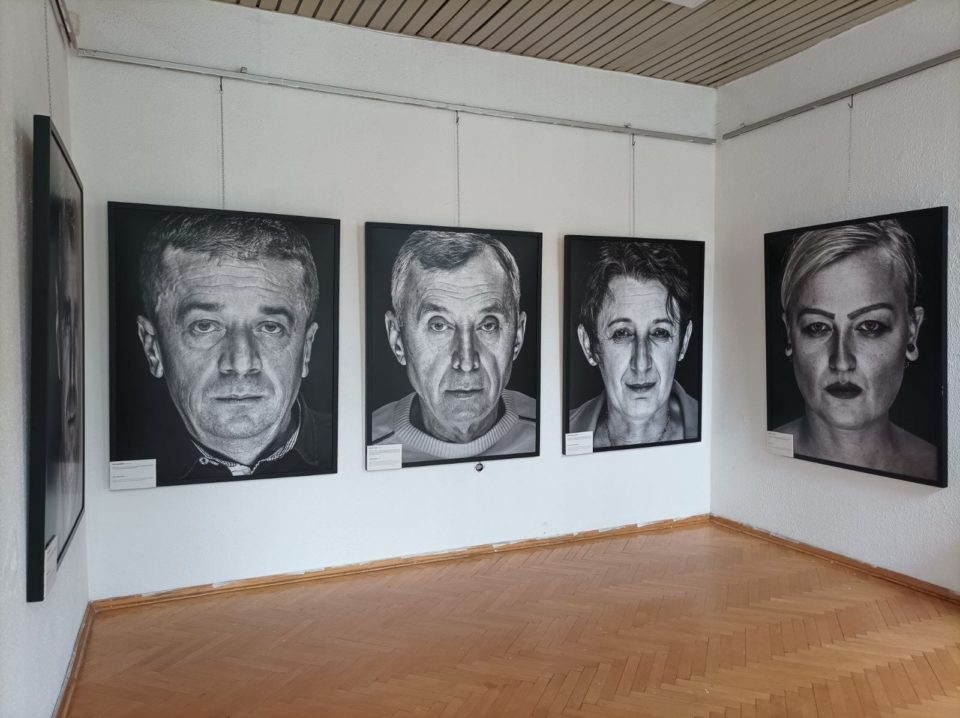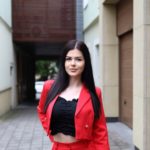
Alma Numić and Mara Milanković-Daradan are peace activists who have shared their wartime stories with others and, by listening to the stories of other survivors, they promote the idea of peace among young people. For years, they have been working to build sustainable peace in Bosnia and Herzegovina. They are an example of multi-ethnic friendship that breaks down the prejudices of post-war society.
Before the war in Bosnia and Herzegovina, Alma and Mara lived in families that didn’t know the differences. Alma describes her childhood as beautiful and happy. She grew up in a working-class family that was full of love, attention, and understanding. In school and outside of it, she shared this happiness and beauty with her peers, up until the moment when the war forced her to leave her home and she became a refugee. At the age of 14, she was wounded during the bombing in Tešanj.

In Mara’s family, issues of religion and nationality were not important. She emphasizes that her parents raised her to see people as either humane or inhumane. The war found her in Sarajevo, where she was studying. She returned to her hometown of Derventa and joined the Army of Republika Srpska (VRS). She was wounded and is now an 80 percent disabled veteran.
Alma has been involved in peace activism for the past 13 years, since attending an educational program on peacebuilding in Bosnia and Herzegovina as a member and volunteer of the Mother Women’s Association for the Affirmation of Family Values. Through this organization, she shared her experiences from the conflict in Bosnia and Herzegovina.
Mara has been involved in peace activism for 20 years, and she has been giving public speeches for the past ten years. She said, “It took a lot of strength and courage to speak about my experiences in front of unknown people throughout the region, to spread the idea of peace among young people who are already poisoned by hatred at home.” She added that the most challenging aspect was gaining acceptance for her work from her former friends.
She highlighted the dozens of peace projects that she has implemented in her hometown and other cities. Through these projects, she connected 12 local communities, sports teams, cultural and artistic associations, as well as associations that emerged from the war. She noted that she organized many events on the occasion of the International Day of Peace and had conversations with hundreds of young people, urging them to “cherish peace as the apple of their eye.”
Severe Wounds
Alma was wounded on October 8, 1995, during the bombing of Tešanjka in Tešanj, while she was in a refugee house. She recalled that it was a sunny, peaceful October day, but that something was different, as if it foreshadowed something ominous. During the bombing, nine people were killed and several others wounded.
“That afternoon, I felt the most terrifying impact, as if the earth was collapsing and I was sinking into it. With God’s help, I’m alive today, a witness to the cruelty of one human being towards another. To this day, no one, not even myself, understands how I survived,” said Alma, adding that the first victim she saw was the daughter of her next-door neighbor, a cheerful, blonde girl named Lejla, who was only seven years old.
Alma recounted that Lejla passed away in her father’s arms, and that she was the last one to have hugged and talked to her in front of the house. Afterward, Alma went into the house, and Lejla stayed to wait for her mother, whom she never saw again.
“Since then, no one has been held accountable for the atrocities committed against civilians in the Tešanjka area of Tešanj,” Alma lamented, adding that justice is slow but attainable.
Mara’s war story begins when she left her studies in Sarajevo to return to Derventa, where she encountered barricades set up by the Croatian Defense Council (HVO). “I was a student when the war began on the territory of the former Yugoslavia. Suddenly, I became an enemy to all my friends and acquaintances, just because I’m a Serb,” Mara said.
Mara said that they let her pass the barricades but told her that it was because she was a woman, and that she should never set foot in the place where she grew up again. When she arrived at her family home, it was empty. Everyone had already fled as refugees, except for Mara’s father and brother, who were drafted. Wanting to try to protect her loved ones, she also joined the VRS. Her father and brother were wounded, while her sister was killed by the same grenade that injured Mara.
“The war devastated our homes. It destroyed not only mine but countless families as well. It brought no good to anyone,” Mara asserted.
When she first shared her story and heard the stories of other survivors, Alma said that it inspired and motivated her to engage in peace activism. “We felt like human beings. There was empathy and understanding regardless of our ethnic backgrounds. I saw that together, we could preserve peace, foster communication and dialogue with all social actors for a safer future, implement projects, and do good in our communities,” stated Alma.

She said that she’s proud to be in the service of peace in Bosnia and Herzegovina, to live and work in her homeland without harboring an ounce of hatred towards others who are different.
“Through peace activism, I opened my soul and met many good people. I now have friends from all over Bosnia and Herzegovina, from Mostar and Sarajevo to Prijedor. In this way, I’ve escaped being held captive by the distant war-torn 1990s,” Alma reflected.
Building Peace and Unity
They describe the secret of friendship as a true source of happiness, a gift from God which they consider inevitable. Some friends meet as children, some meet later in life, and some meet purely by chance. Alma and Mara met by chance, and their friendship continues to this day.
“Our accidental friendship, now a true friendship, began with a phone call that I made to Mara. That’s when we first met. We agreed to meet up at a gas station and go together to the first educational program on the war and post-war activities in terms of peace activism,” Alma recounted.
She explained that their first encounter was superficial, yet there was a mixture of emotions and it felt as if they had known each other their entire lives. From their initial meeting to the present day, she says that they’ve been open with each other and time has revealed their similarities, humanity, and a shared zest for life. From the educational program, they progressed to the point where they got to know each other’s families, worked on joint projects, went out together, traveled, shopped, talked for hours on the phone, laughed, grieved, and celebrated together, all with the desire to stay healthy.
Describing Alma, whom she came to know through their work, Mara, characterized her as “a wonderful woman.”
“Alma is a civilian war victim. She was a child when she was wounded. You know that feeling when you instantly click with someone and you want that person to be your friend for life. That’s how the two of us clicked. We support each other with a lot of love. I see Alma as family,” said Mara, a mother of two. She emphasized that she has raised her children just as her parents raised her – to love their own and respect others, and to recognize the value of diversity.
For Alma and Mara, as they explain, there are no “imposed” norms.
“We live our dreams by building peace and unity in our homeland, Bosnia and Herzegovina,” Mara concludes.






